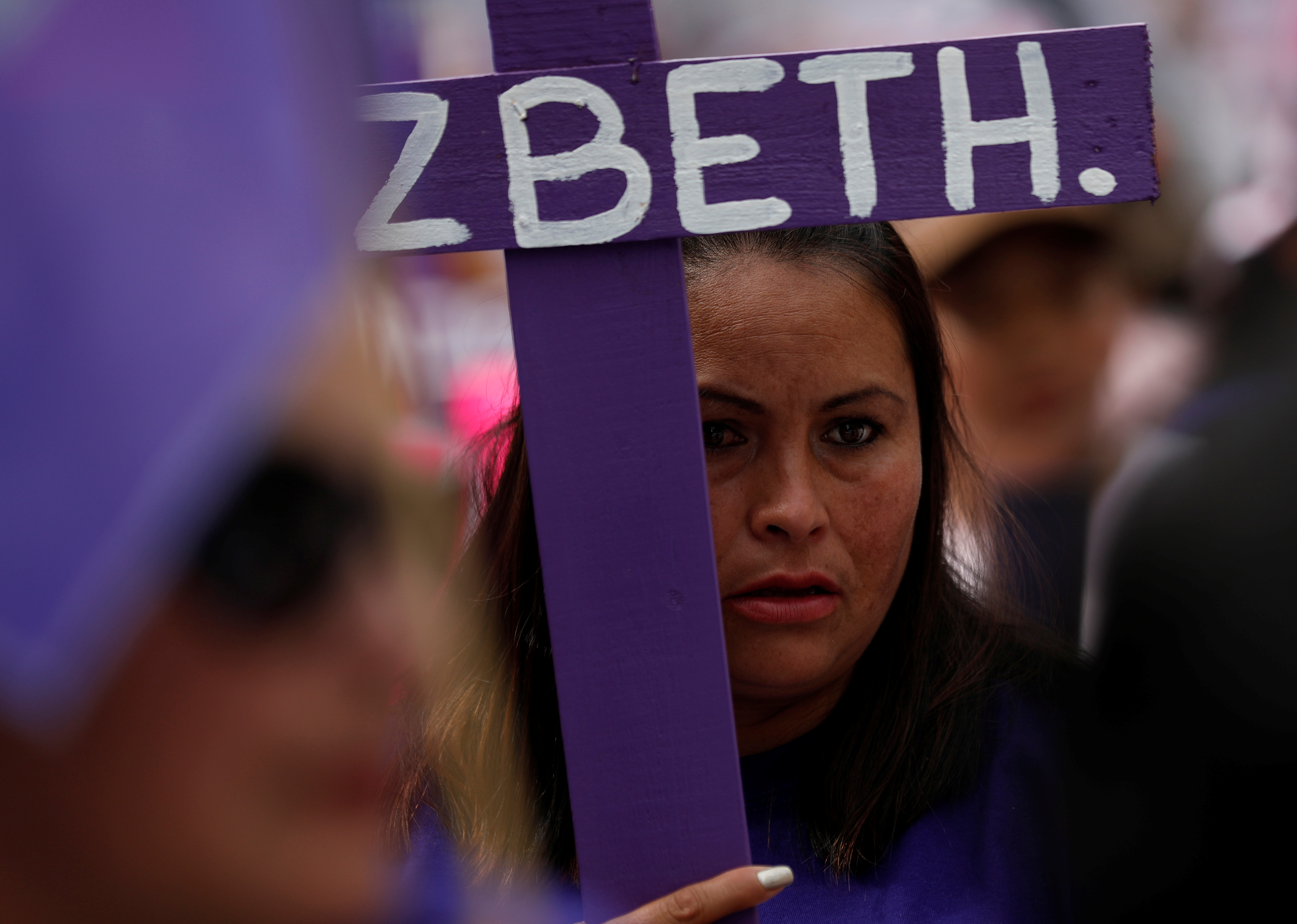
By Sonia Elks, Umberto Bacchi and Annie Banerji
LONDON/TBILISI/NEW DELHI (Thomson Reuters Foundation) – When British teenager Kaitlyn McGoldrick heard domestic violence was increasing under lockdown, she posted a video on social media showing victims how to make a silent emergency call to police without their attackers finding out.
“I just wanted to get the message out there that there are still places you can go,” said McGoldrick, 14, a volunteer police cadet whose post has had more than 50,000 views on the TikTok video-sharing platform.
As coronavirus curbs trap victims under the same roof as abusers, the United Nations has called domestic violence a “shadow pandemic”, and the issue has led to a flurry of online campaigns by charities, celebrities and ordinary social media users.
Inundated with positive responses to her video, McGoldrick plans to share more advice posts with backing from the local police youth volunteer group to which she belongs.
Some of the anti-abuse posts circulating on social media are proving more controversial, however.
There has been criticism of a trend on TikTok in which young women wear lurid fake blood makeup to depict domestic violence scenarios. Critics say such videos could upset victims and often appear more clickbait than genuine campaigning.
Domestic violence campaign groups have also expressed concerns about posts inviting victims to get in touch for support instead of directing them to more expert advice.
SPOTLIGHT ON VIOLENCE
Still, most campaigners say attention-grabbing posts and videos have shone a spotlight on violence within the family, which is often cloaked in shame and fear that stops many victims seeking help.
“We need and appreciate attention on this critical and all-too-often hidden issue,” Latanya Mapp Frett, chief executive of the Global Fund for Women, told the Thomson Reuters Foundation.
While celebrities from Russian punk band Pussy Riot to Bollywood stars have spoken out in anti-domestic violence campaigns, the vast majority of online posts are shared by ordinary social media users.
Some post on their own stories of abuse, often offering to support others going through similar situations.
Others share clips including tips such as how to secretly call police under the guise of ordering a pizza.
Attention-grabbing videos like those posted on TikTok could particularly help reach young people who might be less able to spot warning signs of abuse, said Marcella Pirrone, of Women Against Violence Europe (WAVE).
She cautioned that posters should offer emotional support and information rather than pressuring women to potentially put themselves at risk by demanding they contact police, but said wider discussion of the issue was valuable.
“What’s interesting is there is a lot of talk about violence now and that’s something we had always been asking for: to have awareness-raising, to have proper attention to this,” she said.
RAISE AWARENESS
The involvement of celebrities and social media influencers is also helping to raise awareness about the heightened risk of abuse during worldwide lockdowns.
“COVID-19 has not created new problems for women, it has just exacerbated the old ones,” U.S. comedian and presenter Samantha Bee said in a clip from her late-night television show addressing gendered abuse and shared on her social media pages.
The video, which has gathered hundreds of thousands of views, includes helpline details and highlights virtual support groups for women unable to leave the house.
A social media campaign starring more than a dozen Bollywood and theatre actors was launched in India earlier this month by Mumbai-based Women in Film and Television (WIFT).
“If you’re beaten at home, if you’re facing excesses or bad behavior and you want to report it, please call on the helpline numbers below,” said actor Richa Chadha in an online video in the #baskuchdinaur (‘Just a few more days’) campaign.
In Russia, a pop star who was condemned for suggesting women who spoke out against abuse had mental problems has sought to make amends by producing an informative YouTube movie about domestic violence that has racked up more than 4 million views.
In a country with high levels of abuse where speaking out is often stigmatized, Regina Todorenko’s 80-minute film has drawn “unprecedented” public attention to the issue, said Janette Akhilgova, a Russia consultant for rights group Equality Now.
With many people spending more time on social media during the lockdown, the teenager McGoldrick said it was a vital tool for increasing awareness.
“It’s such an important subject to get out there,” she said. “The more people are spreading the word about it, the better.”
(Reporting by Sonia Elks, Umberto Bacchi and Annie Banerji; Editing by Helen Popper. Please credit the Thomson Reuters Foundation, the charitable arm of Thomson Reuters, that covers the lives of people around the world who struggle to live freely or fairly. Visit http://news.trust.org)







